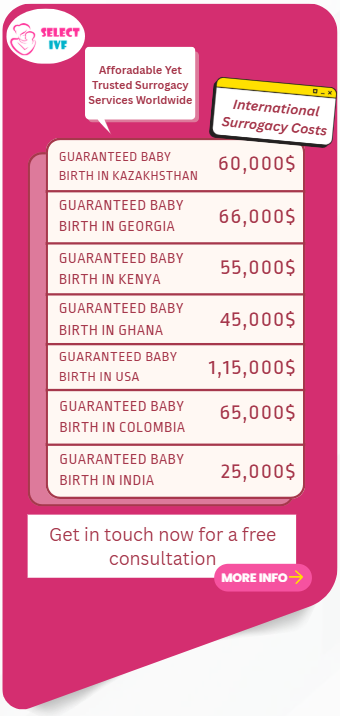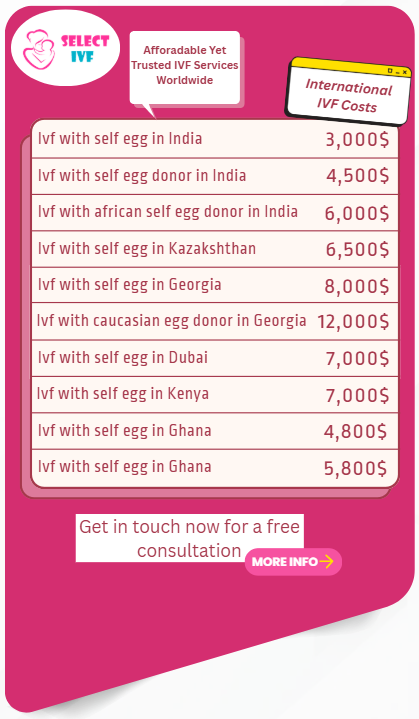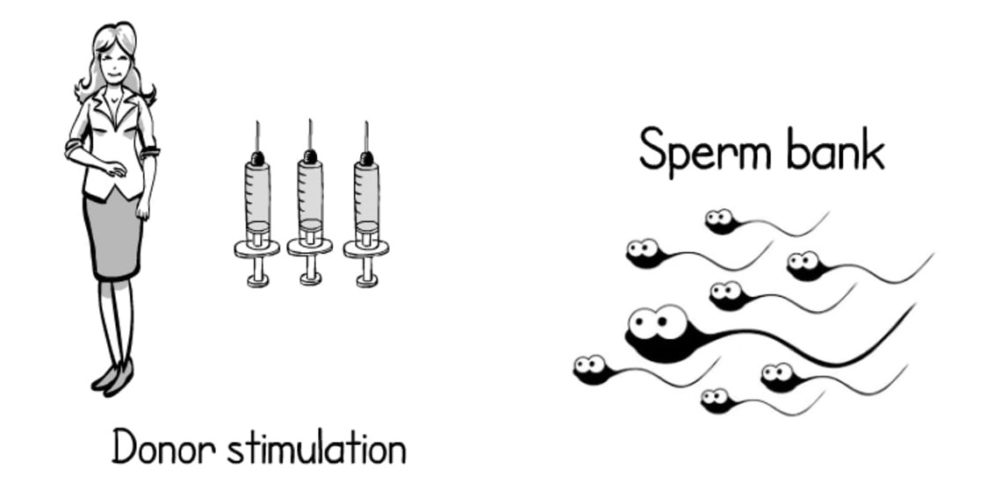Table of Contents
ToggleICSI Treatment
Welcome to Select IVF, where groundbreaking reproductive technologies meet personalized care. As a leader in fertility solutions, we specialize in ICSI Treatment, a cutting-edge procedure designed to overcome male infertility challenges.
Intracytoplasmic Sperm Injection (ICSI) involves the meticulous injection of a single sperm directly into the egg, enhancing the chances of successful fertilization. Our dedicated team of fertility experts employs state-of-the-art techniques, ensuring precision and effectiveness throughout the ICSI process.
At Select IVF, we understand the emotional and physical complexities of the fertility journey, and our commitment to excellence extends beyond medical procedures. Trust us to guide you through the transformative ICSI Treatment, offering hope and a tailored approach to achieving your dream of parenthood.
What is ICSI Treatment?
Intracytoplasmic Sperm Injection (ICSI) is an advanced fertility treatment where a single sperm is directly injected into an egg to facilitate fertilization. When traditional procedures are ineffective, this rigorous approach is used as part of IVF. ICSI is particularly beneficial in cases of male infertility, low sperm count, or poor sperm motility. ICSI raises the possibility of viable embryos by increasing the chances of successful fertilization, adding to the effectiveness of assisted reproductive procedures and providing hope to couples suffering fertility issues.
ICSI Treatment Process Step by Step
ICSI, or Intracytoplasmic Sperm Injection, is a comprehensive fertility treatment comprising several key stages. Here is a refined step-by-step guide to the ICSI process:
Initial Consultation: The couple initiates the journey with a fertility specialist, engaging in a thorough discussion of their infertility concerns. The goal is to assess whether ICSI is a suitable course of action.
Ovarian or ICSI Stimulation: The female undergoes ovarian stimulation, inducing the production of multiple eggs through hormonal interventions like Follicle-Stimulating Hormone (FSH). This phase is also referred to as ICSI stimulation.
Egg Retrieval: A minimally invasive procedure, typically performed under local anesthesia, is employed to retrieve eggs from the ovaries.
Sperm Collection: On the same day as egg retrieval, the male provides a semen sample. The laboratory analyzes this sample to identify the highest quality sperm for injection. Prior to this, the male partner is advised to abstain from sexual activity or masturbation for two to three days.
Sperm Preparation: The selected sperm undergoes preparation through washing and selection, ensuring the injection of the most viable sperm cells.
Injection of Sperm: Utilizing a fine needle, a single, healthy, and viable sperm is injected directly into each mature egg.
Fertilization: The fertilized eggs undergo observation in the laboratory, monitoring for successful fertilization and subsequent cell division. These embryos are allowed to develop in the laboratory over several days.
Embryo Transfer: Typically 3-5 days after fertilization, one or more embryos are transferred into the woman’s uterus using a small catheter.
Pregnancy Testing: Approximately two weeks post-embryo transfer, a pregnancy test is conducted to determine the success of the procedure.
Get Free Appointment
How does ICSI Work?
ICSI, or intracytoplasmic sperm injection, follows the same procedure as IVF treatment. The key distinction lies in the method of fertilization. Rather than allowing the sperm and eggs to naturally combine, a proficient embryologist will precisely inject a single sperm directly into the egg. This technique enhances the likelihood of successful fertilization by circumventing any potential challenges the sperm may encounter in penetrating the egg.
Indications for ICSI
ICSI indications in the area of assisted reproductive technologies are various and geared to treat unique fertility issues. We go into the numerous instances where this sophisticated reproductive technology becomes beneficial under the umbrella of III. Indications for ICSI.
Male Factor Infertility
Male factor infertility stands as a primary driver for the utilization of ICSI. In cases where conventional fertilization methods might be hindered, ICSI offers a solution.
- Low Sperm Count: ICSI becomes a crucial intervention when a male partner exhibits a low sperm count, a condition that may otherwise impede the natural fertilization process. By directly injecting a single sperm into an egg, the chances of successful fertilization are significantly enhanced.
- Abnormal Sperm Morphology: Another facet of male factor infertility addressed by ICSI is abnormal sperm morphology. When sperm exhibit structural irregularities that hinder their ability to penetrate an egg, the precision of ICSI ensures that a viable sperm is directly introduced to the egg, overcoming morphological barriers.
Other Fertility Challenges
ICSI is not limited to male factor infertility; it also proves beneficial in addressing a spectrum of other fertility challenges.
- Unexplained Infertility: In cases where the cause of infertility remains elusive despite thorough diagnostic investigations, ICSI emerges as a viable option. By bypassing natural fertilization barriers, ICSI increases the likelihood of successful conception even in the absence of a clear explanation for fertility issues.
- Previous IVF Failures: Couples who have undergone unsuccessful IVF attempts may find renewed hope through ICSI. This technique offers a more targeted approach, overcoming previous fertilization obstacles and potentially leading to a successful pregnancy where traditional methods have fallen short.
What is The Cost of ICSI Treatment?
The cost of ICSI treatments, but in many instances, it falls within the range of Rs. 2,40,000 to Rs. 2,50,000 per cycle. This encompasses the comprehensive process, from initial consultation to the completion of one treatment cycle. The expenses associated with ICSI are influenced by factors such as the clinic’s location, the expertise of the medical professionals involved, and any additional services provided. It’s important to note that these figures represent a general estimate, and actual costs may differ based on individual circumstances. Prospective parents should consult with fertility clinics to obtain precise information regarding the specific costs and potential financial considerations associated with ICSI treatments.
Who Needs ICSI Treatment?
ICSI is particularly beneficial for individuals grappling with male infertility. Your healthcare provider might suggest ICSI if there are issues such as:
- Anejaculation (incapacity to ejaculate).
- Blockage in the male reproductive system.
- Low sperm count.
- Poor sperm quality.
- Retrograde ejaculation (backward flow of semen into the bladder).
ICSI may also be recommended in the following scenarios:
- Traditional IVF has not resulted in the development of embryos.
- The individual providing the eggs is above the age of 35.
- You are utilizing previously cryopreserved eggs or sperm in your attempts to conceive.
How long does ICSI Process take?
The ICSI process comprises five key stages. Firstly, ovarian stimulation involves hormone injections over a span of approximately 10 to 12 days, aiming to generate an optimal quantity of eggs. Following this, a minor procedure lasting 15 to 20 minutes is conducted to retrieve eggs from the woman’s ovaries. The subsequent steps involve the injection of a single sperm into each egg, allowing for fertilization. Cultivation of the embryos occurs in a controlled environment, and finally, the developed embryos are transferred to the uterus. The overall duration of the ICSI process spans several weeks, incorporating these essential steps to maximize the chances of successful conception.
How is ICSI Different from IVF?
ICSI, a specialized form of IVF, diverges from traditional methods where chance governs fertilization. In conventional IVF, thousands of sperm surround an egg in a laboratory dish, relying on probability for successful fertilization.
ICSI, however, elevates the odds by directly injecting a single sperm into a single egg. Despite this precision, ICSI doesn’t assure fertilization. The common thread in both ICSI and traditional IVF lies in the subsequent step – the implantation of the fertilized egg (embryo) into the uterus.
The prospect of pregnancy unfolds as the embryo successfully attaches to the uterine lining, underlining the shared objective of both techniques in facilitating conception.
Frequently Asked Questions:-
Cost. The ICSI procedure costs between $1,400 to $2,000. This is on top of the general IVF cost, which on average costs $12,000 to $15,000.
ICSI procedures could cause a little pain to the patient by doing needle aspiration and injection. The egg retrieval process is painless because the anesthesiologist will use anesthesia and sedation medication.
When IVF is attempted, there must be a minimum of half a million viable, mature sperm to fertilize one egg. Needless to say, this can be a big problem for men with a low sperm count. But with ICSI, one lone sperm can be injected directly into an egg for insemination and fertilization.
ICSI allows men with low sperm counts, poor morphology, poor sperm quality, or infertility to have children. ICSI increases the chances of pregnancy for women over 35 who are infertile to have a better chance of becoming pregnant.









